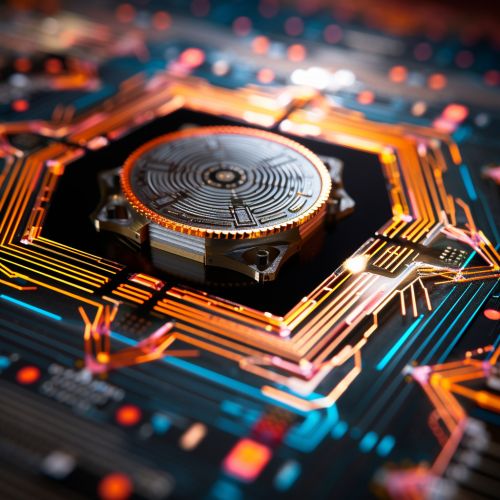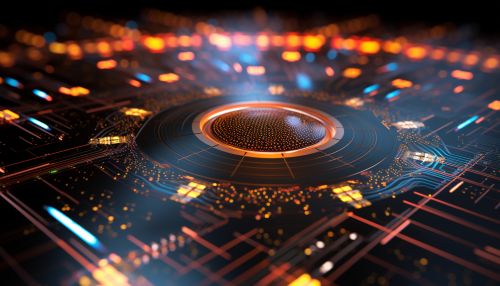Quantum Spin Memory
Introduction
Quantum spin memory is a concept in quantum physics that involves the use of quantum spins in quantum systems to store and manipulate information. This concept is a fundamental aspect of quantum computing and quantum information science, which are fields that seek to harness the unique properties of quantum mechanics to perform computational and informational tasks that are beyond the reach of classical systems.


Quantum Spin
In quantum mechanics, spin is a type of intrinsic angular momentum that is carried by elementary particles, composite particles (hadrons), and atomic nuclei. Unlike classical angular momentum, spin has quantum properties, which means that it can only take on certain discrete values and can exist in superpositions of these values. This is one of the key properties that makes it useful for quantum memory.
Quantum Memory
Quantum memory is a device that can store quantum information, similar to how a classical memory device can store classical information. However, unlike classical memory, quantum memory can store quantum states, which can exist in superpositions and can be entangled with other states. This allows quantum memory to store and manipulate information in ways that are not possible with classical memory.
Quantum Spin Memory
Quantum spin memory is a type of quantum memory that uses quantum spins to store information. This is achieved by manipulating the spins of quantum particles in such a way that they can store and retrieve quantum information. The information is stored in the form of quantum states, which can be manipulated using quantum gates to perform quantum computations.
One of the key advantages of quantum spin memory is that it can store a large amount of information in a small physical space. This is because each quantum spin can store a quantum bit, or qubit, of information, and the number of qubits that can be stored in a given physical space is limited only by the number of quantum spins that can be individually controlled and measured.
Another advantage of quantum spin memory is that it can maintain quantum coherence for long periods of time. Quantum coherence is a property of quantum systems that allows them to exist in superpositions of states and to be entangled with other systems. This is crucial for quantum computing and quantum information processing, as it allows quantum systems to perform complex computations and to store and transmit information in a highly secure manner.
Quantum Spin Memory in Quantum Computing
In quantum computing, quantum spin memory is used to store and manipulate qubits, which are the fundamental units of quantum information. Qubits are stored in the spins of quantum particles, and quantum gates are used to manipulate these spins in order to perform quantum computations.
Quantum spin memory is a crucial component of many types of quantum computers, including spin-based quantum computers, superconducting quantum computers, and topological quantum computers. These types of quantum computers use different physical systems to implement quantum spin memory, but they all rely on the same basic principles of quantum mechanics.
Challenges and Future Directions
Despite the many advantages of quantum spin memory, there are also several challenges that need to be overcome in order to fully realize its potential. One of the main challenges is maintaining quantum coherence for long periods of time, as quantum systems are highly susceptible to decoherence, which is the loss of quantum coherence due to interactions with the environment.
Another challenge is scaling up quantum spin memory to store large numbers of qubits. This requires the ability to individually control and measure large numbers of quantum spins, which is a difficult task due to the small size and delicate nature of quantum systems.
Despite these challenges, there is ongoing research into new methods and technologies for implementing quantum spin memory. This includes research into new types of quantum materials, new methods for controlling and measuring quantum spins, and new architectures for quantum computers. With continued research and development, quantum spin memory has the potential to revolutionize the fields of quantum computing and quantum information science.
